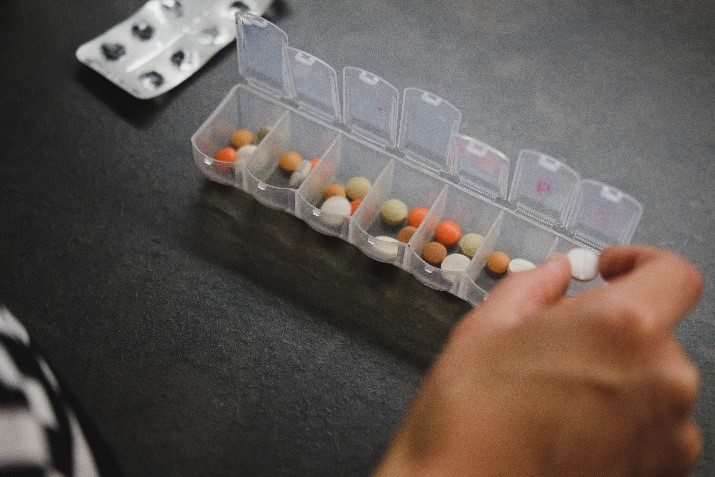Weight loss surgery can dramatically improve your health and lifestyle if you struggle with obesity. While bariatric surgery does expedite weight loss, keeping the weight off in the long term requires a commitment to a new diet and regular exercise. Part of that diet includes several vitamins and supplements. Because you’re consuming far fewer calories, it’s much harder to obtain all the nutrients you need from your diet alone. Many obese individuals suffer from vitamin deficiencies before their surgery, so it’s critical to take the supplements your surgeon recommends post-op to prevent ongoing deficiencies.
Why are Vitamins and Supplements So Critical After Weight Loss Surgery?
Your body uses the nutrients you consume to provide systemic support to your organs and bodily functions. Many patients fail to recognize the symptoms of mild to moderate vitamin deficiencies. Many patients feel better than ever as they start to lose weight, so they don’t realize they’re deficient in certain vitamins.
While vitamins are important for everyone, bariatric patients need to take them. Bariatric surgery alters your anatomy, which changes how your body absorbs nutrients from food. Less absorption combined with fewer consumed calories makes it almost impossible to obtain enough vitamins and minerals from food alone.
What Vitamins and Supplements Do I Need to Take After Weight Loss Surgery?
Vitamin and mineral needs vary from person to person, and your surgeon will make recommendations based on your specific physiology. Even so, bariatric patients are particularly susceptible to certain deficiencies, and they need to know the signs to prevent health problems. These include:
- Thiamine (B1). Of the B vitamins, scientists discovered thiamine first (hence the B1 moniker). Your body uses thiamine for several purposes, including supporting a healthy nervous system, brain, muscles, and several organs. It also converts our food into energy and maintains blood levels. Symptoms of thiamine deficiency include loss of appetite, fatigue, pins and needles sensations in the arms and legs, blurry vision, and nausea. In addition to supplements, other good sources of B1 include whole grains, nuts, soybeans, and poultry.
- Cobalamin (B12). This vitamin gets its name from the mineral cobalt, and it plays a critical role in red blood cell formation, brain development, and nerve cell function. Symptoms of B12 deficiency include pale skin, jaundiced skin or eyes, a smooth or inflamed tongue, depression, memory problems, numbness, tingling, lightheadedness, and shortness of breath. Most food sources of B12 come from animals, including beef, lamb, turkey, milk, yogurt, cheese, and eggs. Non-animal sources include fortified cereal, almond milk, tempeh, and cremini mushrooms.
- Vitamin D. Almost every organ in your body needs vitamin D to function. Vitamin D is also critical for calcium absorption to support healthy teeth and strong bones. Vitamin D supports a healthy immune system and reduces inflammation as well. You might be Vitamin D deficient if you notice any of the following signs: fatigue, hair loss, slow-healing bruises, recurrent illnesses, bone and muscle pain, and low bone mineral density. In addition to taking your vitamins, you can obtain Vitamin D from egg yolks, fortified cereal, certain fish, and red meat.
- Iron. Your body uses iron to make the red blood cell proteins hemoglobin and myoglobin. Hemoglobin transports oxygen from your lungs to your organs and body tissue, while myoglobin oxygenates your muscles. Iron deficiency anemia can cause severe fatigue, headaches, cold hands and feet, an inflamed tongue, pale skin, weakness, and pica (a desire to eat non-food items like dirt, ice, or clay). Chicken, pork, and other meats are all rich in iron. Fish, tofu, nuts and seeds, and dark leafy vegetables are also good sources of iron.
- Copper. Your body uses copper to make red blood cells, absorb iron, support a healthy nervous system, support immune function, maintain your metabolism, and generate energy. Copper deficiency can cause several complications, such as fatigue, weak bones, learning difficulties, feeling cold, frequent illnesses, pale skin, and vision loss. Food sources for copper include shellfish, dark leafy vegetables, cocoa, organ meats, nuts, beans, fortified cereal, and potatoes.
Taking the vitamins your surgeon recommends is a great way to prevent vitamin deficiencies. However, because deficiencies don’t always present with symptoms right away, it’s important to have your vitamin levels checked at least two times per year. Contact us to learn how weight loss surgery can improve your long-term health.





